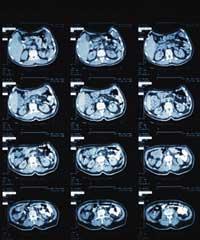Oncogenes and vaccines for cancer treatment
strong>Cancer, hard word for many. But no wonder the suffering it can cause. Much research is being done to find a way to cure cancer, but new lines of research are emerging in recent years. Two of them are oncogenes and the cancer vaccine. Both are still at the research level, but they are ways of interest and have already begun to experiment with people.
Oncogenes

The goal of oncogenes is to know in advance the patient's response to treatments. To do this, genes from tissues that have developed the tumor, such as oncogenes, are taken and studied, depending on whether they are active or not. The results obtained from these tests would predict the impact of chemotherapy or other treatments.
Ignacio Casal Álvarez, director of the Biotechnology program at the National Center for Oncological Research in Spain, says that "oncogenes allow us to determine the genetic characteristics of different cancers, and based on this we will be able to know which patients will respond, for example, to chemotherapy treatment." Thus, patients would be classified and treated based on their ability to respond to certain therapies. It is what is known as pharmacogenomics and that Ignacio Casal sees two main advantages.

In fact, the chemotherapy used may cause the disease to not recede or, conversely, to be sufficient with much weaker treatment. "On the one hand, it would be possible to significantly reduce health expenditure and on the other, avoid unnecessary suffering of patients, provided that it is previously known that it will not respond to treatment."
Cancer vaccine
The other line of research is cancer vaccines. But saying the vaccine does not take into account the usual pattern of the vaccine. In fact, classic vaccines include virus fragments in the vaccine so we can develop antibodies to the disease.
However, cancer is a multigenic disease, in which many genes intervene and it is very difficult to resist from the classic point of view of the vaccine. Therefore, for the development of these vaccines, tumor molecules are investigated and antibodies are created against them. This would introduce antibodies to treatment to help the patient fight the disease.

That's why it's called a vaccine because the goal is to add antibodies. Also called immunotherapy. "In recent years, several antibodies have been approved, both in the United States and in the European Medicines Agency, which are already on the market. There are more admissions and we hope that in 2-3 years the antibody group to treat cancer will increase significantly."
Cancer is often considered a single disease, although it is present in different parts of the body. However, 250 types of cancer are actually known, with common characteristics but with peculiarities.
In recent years, new forms of diagnosis and treatment are taking place, rather than conventional surgery, radiation therapy or chemotherapy. Many of these new treatments are based on important advances in gene identification.Time will tell if these new lines of research advance and how much will contribute to the fight for cancer.
Buletina
Bidali zure helbide elektronikoa eta jaso asteroko buletina zure sarrera-ontzian











